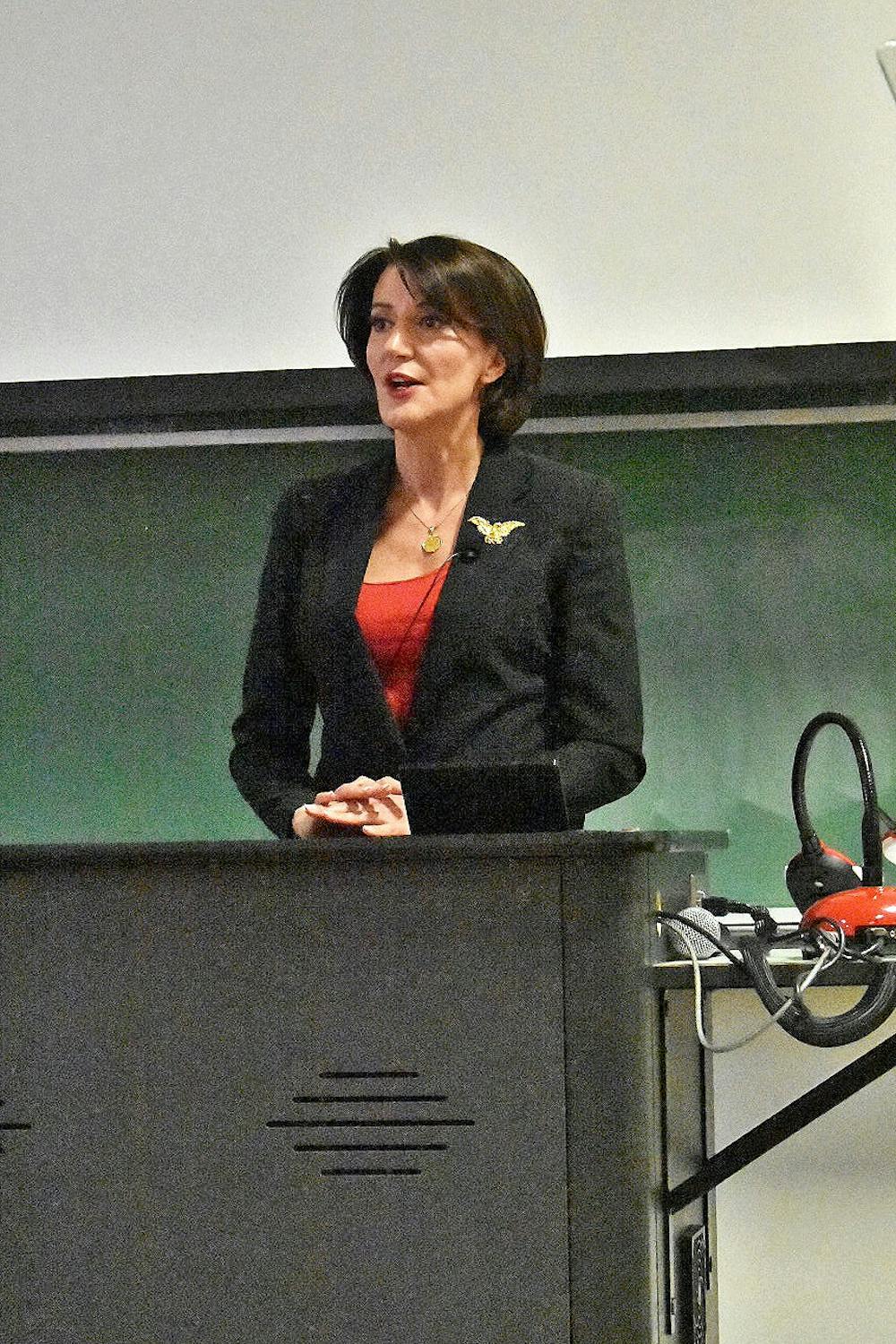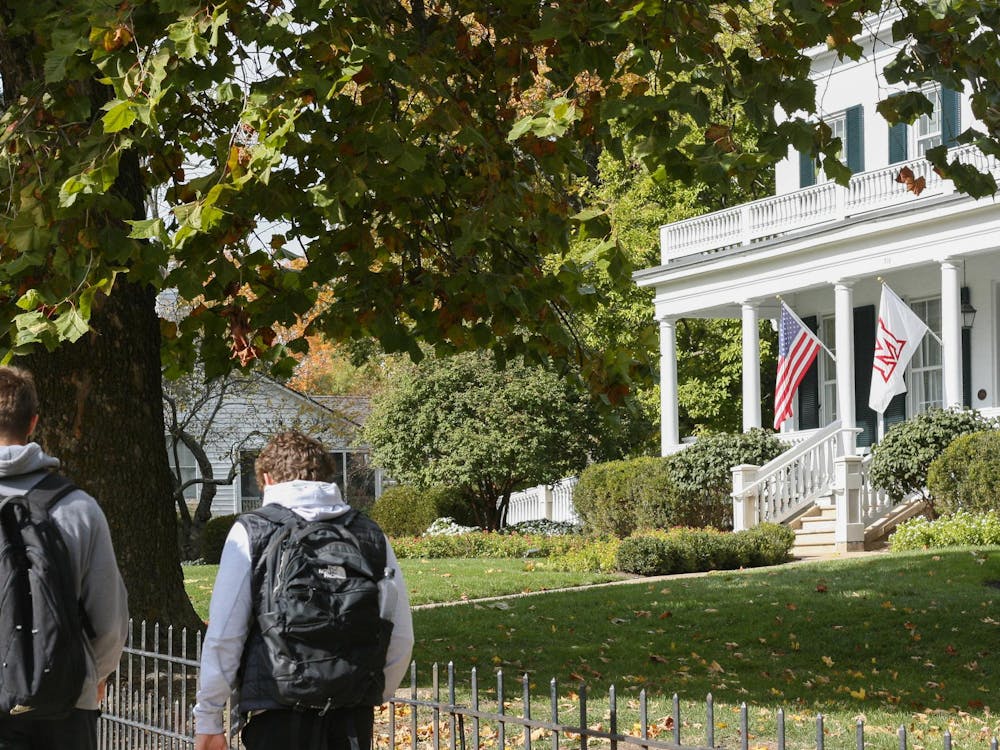Atifete Jahjaga, former Republic of Kosovo president, described her career path in male-dominated, post-war fields that led to her 2011-2016 presidency in a talk on Monday, Nov. 4. Before delving into those topics, however, she began by thanking her audience and asking Miami students and faculty to visit Kosovo.
Carl Dahlman is a Miami professor and coordinator for international studies who also directs the university’s Kosovo study abroad program. After Jahjaga sat down for coffee last summer with a cohort of ten Miami students studying in Kosovo, Dahlman paved the way for Jahjaga to come speak at Miami as part of the Grayson Kirk Lecture series.
In Laws Hall, Dahlman introduced Jahjaga as the fourth president of Kosovo, the first woman in her country to reach this rank and the youngest head of state at the time of her presidency.
“Her CV is impressive, but not as impressive as what she has to tell you,” Dahlman said.
The Kosovo War started in 1998, when Jahjaga hadn’t yet joined the workforce. The Republic of Kosovo gained independence in 2008 from Serbia, which does not recognize Kosovo as a country and waged war for control of it in the past and lost. With Russia’s backing, Serbia has since blocked Kosovo from joining the United Nations and the European Union.
Like many in her generation, Jahjaga completed high school in secret when Kosovo was not yet a country and Serbian forces prevented Albanians from public education that included their culture and language.
“The normal route of going from one class to another for us became the trip from one home to another,” Jahjaga said.
In 2000, a year after the war ended, she obtained a law degree at the University of Pristina, located in what is now the capital of Kosovo, and began work as a legal aide for the United Nations Mission in Kosovo (UNMIK). Within a few months, the country established a new police force.
Jahjaga, against her family’s wishes, quit a “comfortable, well-paying job” to be a police officer, “which was not deemed an appropriate job for a woman” in Kosovo.
“Soon I learned that there was a solid expectation that women would fail in the police force and would ultimately withdraw,” Jahjaga said.
Jahjaga gradually rose up the ranks to become General Lt. Colonel, challenging policies within the force that Jahjaga said discriminated against women.
In 2011, male candidates clamored to replace Kosovo’s third president, Begjhet Pacolli, whose election was deemed unconstitutional. Kosovo parliament saw Jahjaga as a clean slate outside of the “boys’ club” and tapped her to run.
Enjoy what you're reading?
Signup for our newsletter
Jahjaga at first doubted her ability to lead because of her gender.
“There was no one in that position before me, not in Kosovo, not in the region,” Jahjaga said. “That was when I realized that someone had to be the first.”
Jahjaga faced an audience of Miami faculty and students, including Majlinda Shalijani, a Luxembourgish exchange student who has dual citizenship in Kosovo.
Shalijani related Jahjaga’s experiences to her own mother’s stories about growing up.
“There were boys who made her feel like she would not be able to achieve the same things they would be able to do,” Shalijani said.
Defying expectations, Jahjaga ran as an independent. Kosovo Parliament ushered her into office with an unprecedented single round of voting.
@chloeannmurdock




